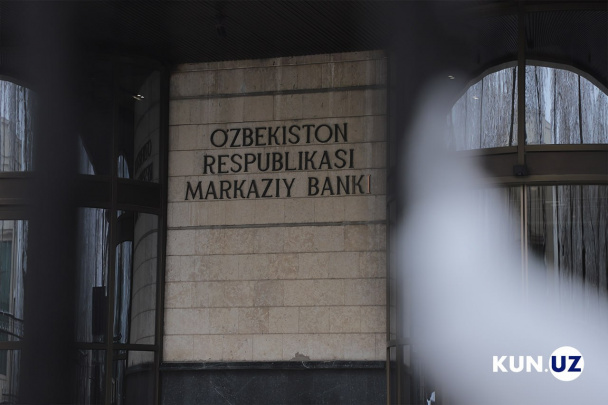Innovations in Trucking: How the US market is being transformed by fintech applications

The U.S. trucking industry has long been known for being conservative and slow to adopt new technology, but with a new project promising to optimize fuel costs and improve the security of financial transactions, all that is about to change.
We caught up with TSS's Senior Project Manager Jahongir Usmonov to find out how he got involved in the industry, how the company is developing innovative fintech applications to help truckers in the U.S. manage fuel costs, and how modern technology can transform one of the most conservative sectors of the economy.
— Jahongir, tell us about how you got started. What kind of knowledge and experience have allowed you to become an expert in the logistics and fintech sector?
— I have an MBA from Sunderland University (UK) and have managed projects and teams of up to 20 people with budgets of up to $10m for over 13 years. In Uzbekistan, I helped Intelligent Consulting become a leader in Business Intelligence by being one of the first to implement Agile product development methodologies. Subsequently, at Instinct Financial Markets, I led the development of the country's first FX trading platform. In Canada, working with giants such as Apple and Walmart, I managed over 20 research projects for ICTC with budgets in excess of $9 million.
— From launching the first forex trading platform in Uzbekistan to managing multi-million dollar research projects in Canada, your track record is impressive. Now you have your eye on the conservative US trucking market, where fintech solutions are being introduced. What is your motivation? Where does this passion for breaking new ground and coming up with out-of-the-box solutions come from?
— Areas where technology has not yet reached its full potential have always attracted me. Where there is an opportunity to apply knowledge, experience and creativity to create something truly new. Something that changes the rules of the game and benefits people.
I have always strived to be at the forefront of innovation, whether it was launching Uzbekistan's first Forex platform, which opened up new opportunities for investors, or leading research in Canada's IT sector, which helped companies better understand the market and create in-demand products.
Trucking in the US is a huge industry with huge potential to grow. However, it is also extremely conservative. Many companies have outdated systems in place, which is a waste of time and money. I am confident that fintech solutions can bring much-needed change to this sector, making it more efficient, more transparent and more secure. This is what is at the heart of my work on TSS technology. This is not just a venture, it's a calling!
— How did you end up working in the trucking industry in the US?
— By 2021, Energy Trucking had asked me to run its Canada office. After a successful launch, I moved on to join Truckstaff Solutions Inc. - a logistics consulting firm. In 2022, with fuel costs being the second largest expense for trucking companies, we saw a critical need for innovation. This is how the TSS Technology LLC project was born. We created a fuel card with a unique discount and security system.
— Jahongir, please tell us about the project you are currently working on to create fintech applications for the US trucking industry. What are the key ideas behind it?
— The aim of our project is to create innovative solutions for the trucking industry in the United States. The main idea is to provide fuel cards. This will allow companies to get significant discounts on fuel and various additional features at fuel stations. Fuel is the second largest expense for trucking companies after driver salaries, so the reduction of this cost is of paramount importance. We are developing both a mobile application and a web application that will include a number of features aimed at optimizing and securing fuel costs.
— For the trucking industry, why is this idea so important?
The trucking industry in the United States tends to be very conservative and very resistant to change. Technology and processes developed decades ago are still in use in many companies. The main demographic is drivers and owner-operators over 50 years old. They are all used to the old way of doing things and are hesitant to change. Especially in today's global economic climate, our project offers innovative solutions that help companies save money and protect their finances.

— You mentioned the security issue. What security measures have you implemented in your application?
— There is a lot of technology incorporated into the app to protect your financial transactions. For example, the driver has to log into the app to use the card, and the PIN code on the card changes every 10 minutes. We link the card to the track's geolocation, which means the card can only work within 100 meters of the truck. This prevents unauthorized use of the cards and protects companies from fraud. We also actively implement banking and fintech best practices to protect our customers' interests.
— What was the genesis of the fuel card idea?
— The idea for the fuel cards came to us in the summer of 2022. I had been working for a year at TruckStaff Solutions, a consulting company in the trucking industry, selling turnkey businesses, providing various services to trucking companies, and helping them increase their profitability. We noticed that there was very little innovation going n and that companies were losing significant money by not managing fuel costs effectively. This led us to create fuel cards with unique offers and discounts.
— What were the main challenges you encountered when developing your project, and how did you overcome them?
— The trust barrier was one of the biggest challenges. As I mentioned earlier, the trucking industry is very conservative and convincing companies to move to new technologies proved challenging. We worked actively to demonstrate the benefits of our product, making numerous presentations and running pilots to show how it worked in practice.
A further challenge has been introducing high-security standards. We developed a system for dynamically changing pin codes and linking cards to the truck's geolocation, recognizing that financial transactions should be as secure as possible. It took a lot of time and effort, and there is still much to be done, but eventually, we managed to create a reliable, secure system.
It was also a matter of tailoring our product to suit different types of trucking companies, considering their individual needs and characteristics. This has dramatically increased the attractiveness of our product in the market by creating a flexible system that can be adapted to specific customer requirements.
— What kind of partnership have you been able to have with the fuel companies?
— We offered fuel companies a unique proposition unavailable in the market, promising them a large market as our company has offices in the USA, Uzbekistan, Ukraine, India, and Canada, and our agents speak a total of 10-12 languages.
Our suggestion was about companies focusing on their US customers while we would give them access to the untapped immigrant market that has thousands of trucking companies represented by various nations in the USA. This was important because they would struggle to hire the right talent and connect to all the truckers who do not use English as their primary language.
— What is your view on the situation of the traction industry in the USA?
— The Trucking industry in the USA is very old-fashioned. There has been very little change in the basic processes over the last 50 years. There is a load, there is a broker that sells that load and there is a trucker that does the delivery. Also, the government has been very slow in introducing new regulations and updating controls. In recent years, there have been new companies with innovative solutions, such as Uber Freight, but their programs are not popular because of the trucker's preference for traditional methods.
— What are some of the main problems in the long-hauling industry?
One of the main problems is the high rate of fraud and skimming. Drivers misuse fuel cards a lot, and there are cases where cards have been stolen and used elsewhere. This leads to companies losing a lot. Our project aims to address these issues by implementing advanced security and control technologies.
Material prepared by Gulmira Toshniyozova
Related News

16:18 / 27.12.2025
Uzbekistan aims to raise IT services exports to $5bn by 2030

22:07 / 17.12.2025
Uzbekistan to expand the Central Bank’s mandate to include development of financial technologies

08:47 / 17.12.2025
President Mirziyoyev announces $4.5 billion investment drive for Tashkent

14:30 / 02.12.2025



